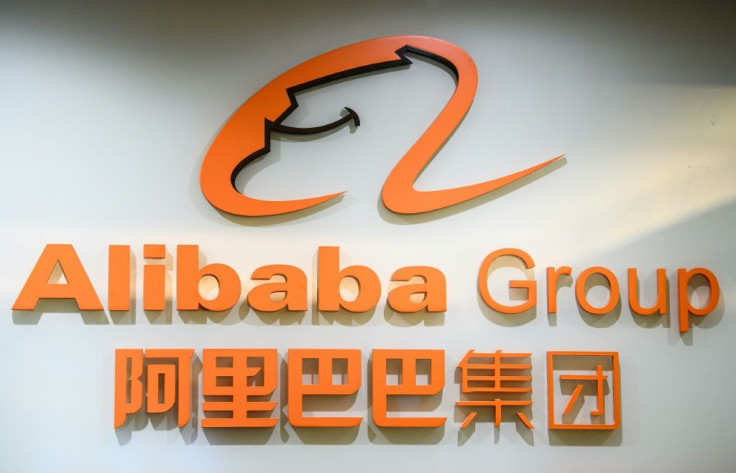China's Alibaba Boosts Sales And Profits Despite Crackdown
Alibaba saw sales and profits jump over the last three months of 2020 despite the Chinese e-commerce giant being in the crosshairs of the authorities.
In November, Chinese authorities pulled the plug on the colossal Hong Kong IPO of Alibaba's online payment subsidiary Ant Group.
A month later, regulators opened an investigation into Alibaba's business practices, deemed anti-competitive, and the group's outspoken founder Jack Ma disappeared from public view until mid-January.
On Tuesday, the company based in the eastern city of Hangzhou said it was "fully cooperating" with the investigation by the State Administration for Market Regulation.
Despite the pressure from Chinese authorities, Alibaba benefited from economic activity and online spending accelerating in China.
In the third quarter of its staggered fiscal year, the Wall Street-listed group reported a profit of 79 billion yuan ($12.2 billion), a 52 percent increase year-on-year.
That came after a fall of 60 percent in the previous quarter, and the pace of the increase remains much smaller than the quadrupling of profit it recorded in the final three months of 2019.
Sales for the October-December period was up 37 percent year-on-year to 221.1 billion yuan -- outstripping the estimates of analysts polled by financial agency Bloomberg, who forecast a 33 percent increase in revenue.
"Thanks to the rapid recovery of China's economy, Alibaba had another very healthy quarter," group CEO Daniel Zhang said in a statement.
While China was the only major world economy to have emerged from a coronavirus-hit 2020 with positive growth, the rate of expansion -- 2.3 percent for the year -- was still its slowest in 44 years.
Given Alibaba's weight in the Chinese market, the group's sales performance is generally considered a good indicator for developments in consumer consumption in the country.
It had a successful Singles' Day sales event on November 11, with Chinese shoppers splurging more than $100 billion in the world's biggest online shopping event of the year.

During the one-day event, Alibaba registered 583,000 transactions per second on its platform.
The Covid-19 pandemic encouraged many Chinese to also have meals delivered to reduce their movements outside. Alibaba's meal delivery service Ele.me saw its number of daily users rise 30 percent during the quarter compared to the same period in 2019.
However, Alibaba noted the setbacks to its online payment subsidiary Ant Group, whose IPO remains on ice.
"Ant Group's business outlook and IPO plans are subject to great uncertainty," the group acknowledged.
China's finance authorities have ordered Ant to change its business model and hack back its lending, insurance and wealth management services, while the anti-monopoly probe against Alibaba continues.
Alibaba Group's problems began after an October speech by its founder Jack Ma critical of China's financial system.
Ma -- one of Asia's richest people with a fortune estimated around $58 billion -- disappeared from the public eye after he was hauled in front of regulators.
A charismatic former teacher turned internet entrepreneur, Ma retired as chairman of Alibaba in 2019 but has long attracted attention for his outspokenness and flamboyant antics, performing as a rockstar at company conferences.
The squeeze on one of China's most influential companies is the latest sign that the leadership is ready to deflate the ambitions of big tech firms in a runaway internet sector.
Despite Ma's brief public reappearance he was conspicuous by his absence from a list of China's top entrepreneurs published Tuesday by a state media outlet specialising in business.
Beijing has a history of disappearing, investigating and imprisoning financial tycoons who do not toe the party line.
Last year, outspoken real estate tycoon Ren Zhiqiang was jailed for 18 years on alleged corruption charges, months after penning an essay critical of the Communist Party.
© Copyright AFP 2024. All rights reserved.











